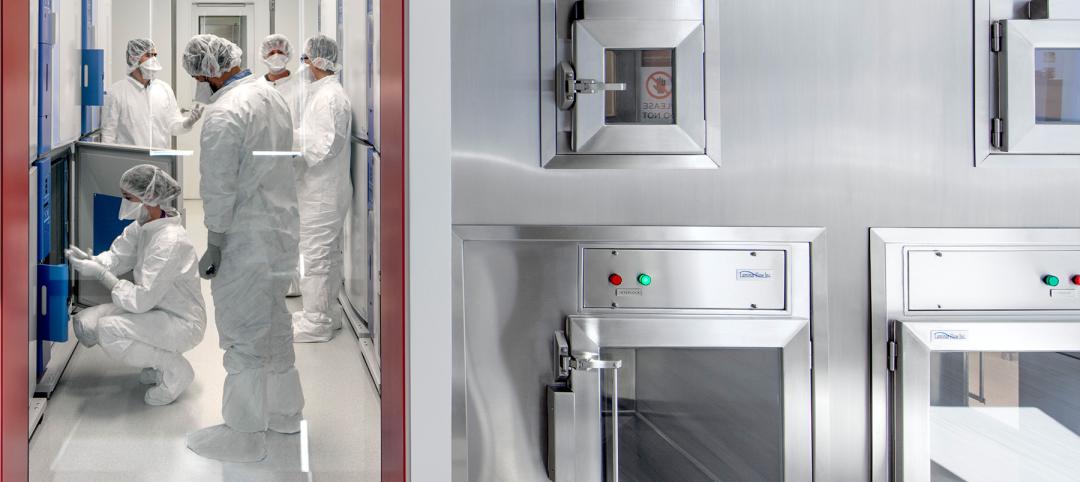The enthusiasm that surged through the U.S. engineering industry following the election of Donald Trump has moderated, according the latest survey of engineering firm leaders by the American Council of Engineering Companies (ACEC).
The first quarter 2017 (Q1/17) of ACEC’s Engineering Business Index (EBI) dipped slightly (0.5 points) to 66.0. The decline is minimal and the score remains decidedly positive, but is in contrast to the 4th quarter 2016 EBI in which, fueled by Trump’s promises of lower taxes, infrastructure investment, and regulatory reform, the score jumped 5.1 points—the largest quarterly increase in the survey’s three-year history.
Now however, with the Administration slow to implement any of these polices, engineering firm leader confidence seems to have plateaued.
The EBI is a leading indicator of America’s economic health based on the business performance and projections of U.S. engineering firms that develop the nation’s transportation, water, energy and industrial infrastructure. The EBI is a diffusion index. The index mean is 50, with scores above 50 indicating business expansion, and scores below 50 indicating contraction. The Q1/17 survey was conducted March 23 to April 24 of 378 U.S. engineering firm leaders.
When comparing today’s market conditions to six months ago, the EBI score climbed 3.2 point to 66.8; while current backlog compared to six months ago was up a strong 5.1 points to 67.1. Additionally, short-term (six-month) expectations for profitability increased 3.5 points to 72.5 points.
Other EBI results however, clearly reflect engineering leader marketplace ambiguity. Market expectations for one year from today fell 2.6 points to 69.5; profitability expectations for the same period were flat (72.9); but looking out three years, expectations fell 2.4 points, and anticipated backlog fell 1.1 points to 70.4.
Concerns about long-term marketplace health resulted in significant declines in nine of the 12 primary public and private sector engineering markets.
For more information about the Q1/17 EBI, go to www.acec.org.
Related Stories
Data Centers | Oct 1, 2024
10 biggest impacts to the data center market in 2024–2025
While AI sends the data center market into the stratosphere, the sector’s accelerated growth remains impacted by speed-to-market demands, supply chain issues, and design innovation necessities.
Higher Education | Sep 30, 2024
Studio Gang turns tobacco warehouse into the new home of the University of Kentucky’s College of Design
Studio Gang has completed the Gray Design Building, the new home of the University of Kentucky’s College of Design. In partnership with K. Norman Berry Associates Architects, Studio Gang has turned a former tobacco warehouse into a contemporary facility for interdisciplinary learning and collaboration.
Warehouses | Sep 27, 2024
California bill would limit where distribution centers can be built
A bill that passed the California legislature would limit where distribution centers can be located and impose other rules aimed at reducing air pollution and traffic. Assembly Bill 98 would tighten building standards for new warehouses and ban heavy diesel truck traffic next to sensitive sites including homes, schools, parks and nursing homes.
Laboratories | Sep 26, 2024
BSL conversions: A cost-efficient method to support high-containment research
Some institutions are creating flexible lab spaces that can operate at a BSL-2 and modulate up to a BSL-3 when the need arises. Here are key aspects to consider when accommodating a rapid modulation between BSL-2 and BSL-3 space.
MFPRO+ News | Sep 24, 2024
Major Massachusetts housing law aims to build or save 65,000 multifamily and single-family homes
Massachusetts Gov. Maura Healey recently signed far-reaching legislation to boost housing production and address the high cost of housing in the Bay State. The Affordable Homes Act aims to build or save 65,000 homes through $5.1 billion in spending and 49 policy initiatives.
Mixed-Use | Sep 19, 2024
A Toronto development will transform a 32-acre shopping center site into a mixed-use urban neighborhood
Toronto developers Mattamy Homes and QuadReal Property Group have launched The Clove, the first phase in the Cloverdale, a $6 billion multi-tower development. The project will transform Cloverdale Mall, a 32-acre shopping center in Toronto, into a mixed-use urban neighborhood.
3D Printing | Sep 17, 2024
Alquist 3D and Walmart complete one of the nation’s largest free-standing, 3D-printed commercial structures
Walmart has completed one of the largest free-standing, 3D-printed commercial structures in the US. Alquist 3D printed the almost 8,000-sf, 20-foot-high addition to a Walmart store in Athens, Tenn. The expansion, which will be used for online pickup and delivery, is the first time Walmart has applied 3D printing technology at this scale.
Retail Centers | Sep 17, 2024
Thinking outside the big box (store)
For over a decade now, the talk of the mall industry has been largely focused on what developers can do to fill the voids left by a steady number of big box store closures. But what do you do when big box tenants stay put?
Government Buildings | Sep 17, 2024
OSHA’s proposed heat standard published in Federal Register
The Occupational Safety and Health Administration (OSHA) has published a proposed standard addressing heat illness in outdoor and indoor settings in the Federal Register. The proposed rule would require employers to evaluate workplaces and implement controls to mitigate exposure to heat through engineering and administrative controls, training, effective communication, and other measures.
Codes and Standards | Sep 17, 2024
New California building code encourages, but does not mandate heat pumps
New California homes are more likely to have all-electric appliances starting in 2026 after the state’s energy regulators approved new state building standards. The new building code will encourage installation of heat pumps without actually banning gas heating.

















